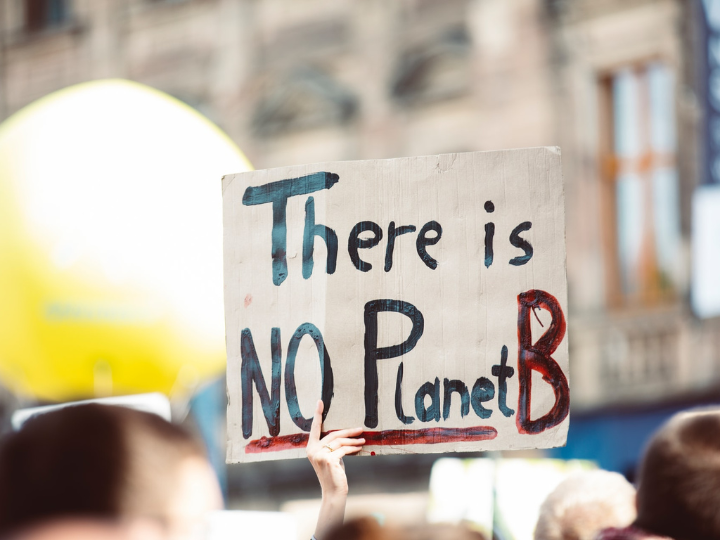by Richard Black*
While climate action is stalling among political leaders, the world faces the disastrous consequences of non-intervention. Momentum for action vanished after Glasgow’s climate summit, but can be strengthened by net zero targets from local authorities and businesses, writes Richard Black.
In climate change, momentum is everything. Climate economist William Nordhaus observed that the problem with getting all countries to cut their emissions faster is that, from a short-term economic standpoint, nations are effectively incentivised to ‘free ride’ on the efforts of others rather than moving first.
However, if there is momentum in pledges, the problem largely disappears. If a government can see others are acting, it is more likely to front up itself – still more so if it considers those that chose early action garnering rewards, perhaps at the ballot box.
This is not only true for governments. Companies vie for a market share within each economy sector using whatever levers they can.
If being seen as ambitious on climate change gets your brand noticed, others will not only follow but strive to come out ahead, just as an athlete does not aim to draw level with the front-runner but establish a lead.
This year, the consequences of not addressing climate change have been laid out more starkly than ever. In February, the Intergovernmental Panel on Climate Change (IPCC) published a coruscating assessment of impacts to date and projected for the future.
Half of the world’s population lives in places vulnerable to climate change. In every region, it is increasing rates of death and illness through extreme heat and other manifestations. Europe is frying in record-high temperatures, with Portugal, France, Spain and Turkey suffering devastating wildfires.
Climate impacts are reducing crop yields, the productivity of fisheries and the security of freshwater supplies. For example, The European Commission’s 2022 soft-wheat crop estimate is down five million tons from a prior estimate.
Much worse is to come, and, increasingly, impacts will outstrip the capacity of humans and nature to adapt. Despite signing off the IPCC report (thus agreeing with its conclusions), governments have not leapt into emission-cutting action.
True, many are grappling with issues such as insecurity, high food prices and intermittent energy supplies driven by the Russian invasion of Ukraine with the tailwinds of the COVID-19 pandemic. But climate change did not stop as these crises took hold.
Last November, at the UN climate summit in Glasgow, governments agreed that their existing pledges were insufficient and needed strengthening this year.
But only a handful have vowed to submit new Nationally Determined Contributions (NDCs, the pledges countries make via the UN climate convention) this year; only one, Australia, has actually done so.
Somewhat extraordinarily, the European Union is not intending to upgrade its NDC target even though it is speeding up measures such as renewables, energy efficiency and electric transport to cut fossil fuel use and undercut Putin’s war machine and would simply have to translate these into a new formal pledge.
The inescapable conclusion is that momentum has largely vanished following the back-slapping and optimistic noises at last year’s Glasgow summit. Whether the G7, G20 or any other international fora can get it back is, right now, a moot point. So, who can?
Possible places to look include entities other than national governments – states and regions, cities and businesses, which all have the option of reducing their emissions by setting and delivering the target of reaching net zero emissions by mid-century or before.
An analysis published last month by the Net Zero Tracker consortium shows that a certain amount of momentum is embedded here.
Over the last 18 months, the number of cities worldwide with net zero targets has doubled. The number of states and regions has also increased by over 50%.
In the corporate sector, one-third of the world’s biggest publicly traded companies now have net zero targets, up from one-fifth at the end of 2020. This is especially noticeable in Europe; more than half of significant corporates headquartered in the UK, France and Germany have set net-zero targets for 2050 or earlier.
Alongside this momentum in net zero target-setting, we also see some, although not enough, whose targets come with measures essential to their delivery, such as a plan, interim targets, an annual reporting mechanism, and low reliance on offsets.
The number of cities meeting a relatively basic set of standards set by the UN’s Race to Zero campaign increased five-fold over the last 18 months, and the number of corporates meeting the same standards rose too.
Logically, the number of entities with net zero targets and the quality of those targets should continue to increase rapidly. Concern about climate change is increasing among the voting public.
For businesses, both customers and shareholders can drive change. And the economics of energy continue to tilt inexorably: solar and wind power is now the cheapest form of new energy capacity in most of the world, while electric car sales have doubled in a single year.
Consequently, coal demand is undoubtedly in decline (notwithstanding short-term increases due to the Putin-driven gas shortage), and oil may be on an inexorable slide too. This real-economy progress can persuade businesses to make more substantial commitments, which in turn can encourage governments to be bolder.
If the momentum to tackle climate change among governments has stalled this year, the ever-growing take-up of net zero targets can regenerate it if matched with growth in robustness.
*senior associate at the Energy & Climate Intelligence Unit (ECIU) and co-lead of the Net Zero Tracker
**first published in: www.euractiv.com




 By: N. Peter Kramer
By: N. Peter Kramer
